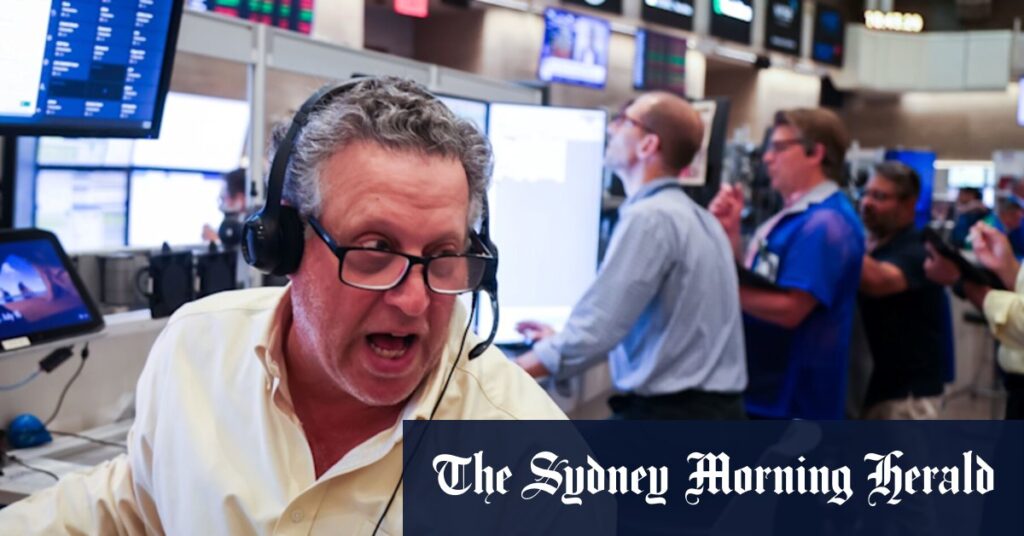
The Australian Securities Exchange (ASX) began the week on a downward trajectory, with significant declines in the mining sector and a notable slip in Commonwealth Bank of Australia (CBA) shares. This downturn comes as financial markets globally brace for a series of crucial central bank meetings set to influence economic policy directions.
Financial stocks showed mixed results. Westpac Banking Corporation rose by 0.7%, and National Australia Bank (NAB) increased by 0.6%. However, CBA, the largest stock on the ASX, fell by 0.6%, alongside ANZ Bank. The latter’s decline followed the announcement that ANZ had agreed to a $240 million penalty to settle four legal cases with the Australian Securities and Investments Commission, admitting to misconduct in bond trading, incorrect trading data reporting, and mishandling borrower hardships.
AMP’s Surge Amid Class Action Settlement
Meanwhile, AMP shares surged by 6.5% to $1.80 after the financial services group announced a preliminary $120 million class action settlement over excessive fees charged by its superannuation subsidiaries. This development marks a significant step in resolving long-standing legal challenges and restoring investor confidence.
Consumer and Healthcare Sectors: A Mixed Bag
The consumer sectors demonstrated strength, with major supermarkets Woolworths and Coles each gaining 0.4%. Bunnings owner Wesfarmers also rose by 0.4%, while Aristocrat Leisure rallied by 2.2%. In contrast, healthcare stocks led the day’s losses, with CSL dropping 1.8% to $204.05, its lowest since June 2019, following a bleak earnings update. Other healthcare firms like Pro Medicus, Resmed, and Fisher and Paykel Healthcare also saw declines.
Large-cap miners experienced a mixed day. Rio Tinto fell by 0.1%, and BHP dropped by 0.6% to $40.58, influenced by lower iron ore prices due to weaker-than-expected industrial production figures from China. However, Fortescue Metals Group gained 0.6%.
Gold Miners and Market Anticipations
ASX-listed gold miners saw a decrease in value after last week’s rally, with Evolution Mining falling 5.3%, marking it as the day’s worst performer. Newmont and Northern Star also experienced declines. Spot gold is trading at $US3636 ($5462) an ounce, maintaining a tight range just below last week’s record high.
Qantas Airways slipped 1% to $11.30 as it prepares to go ex-dividend on Tuesday, with other companies like Inghams, Cochlear, A2 Milk, and South32 following suit later in the week.
Central Banks in Focus
The financial world is keenly watching the upcoming decisions from several central banks, including the US Federal Reserve, Bank of Canada, Bank of England, and Bank of Japan. The Federal Reserve is expected to cut interest rates by 25 basis points, a move anticipated to stimulate the economy. However, the extent of the Fed’s easing measures remains a topic of speculation.
“The week is going to be all about central bank decisions. Of course, the biggest one will be the Fed, which is all but certain to cut interest rates by 25 basis points,” wrote Kyle Rodda, a senior market analyst at Capital.com in Melbourne.
Local Australian employment figures, set to be released on Thursday, are also in the spotlight and could influence market dynamics. A strong jobs report might deter economists from advocating for local interest rate cuts, regardless of US monetary policy adjustments.
US President Donald Trump has been vocal in his calls for a significant rate cut, predicting a “big cut” and urging Federal Reserve Chair Jerome Powell to take decisive action. Trump’s tariff policies and geopolitical uncertainties have contributed to gold’s near-record levels, with the precious metal rallying nearly 40% this year.
Wall Street’s Response
On Wall Street, the S&P 500 edged down by less than 0.1% from its all-time high, while the Dow Jones fell 273 points, or 0.6%. The Nasdaq composite, however, added 0.4% to its own record. Investors are betting on the Federal Reserve’s rate cut as a catalyst for economic growth, although the market could face setbacks if the Fed’s actions fall short of expectations.
“Investors, and I think the Fed, are convinced that we are not on the verge of a surge in inflation,” said Scott Wren, senior global market strategist at Wells Fargo Investment Institute.
Inflation expectations, as per a University of Michigan survey, remain stable, with consumers anticipating a 4.8% inflation rate over the next year. However, long-term expectations have risen slightly, though they remain below levels seen in April when Trump announced his global tariffs.
As the week progresses, market participants will continue to monitor economic indicators and central bank announcements, with the potential for significant market movements based on these developments.






